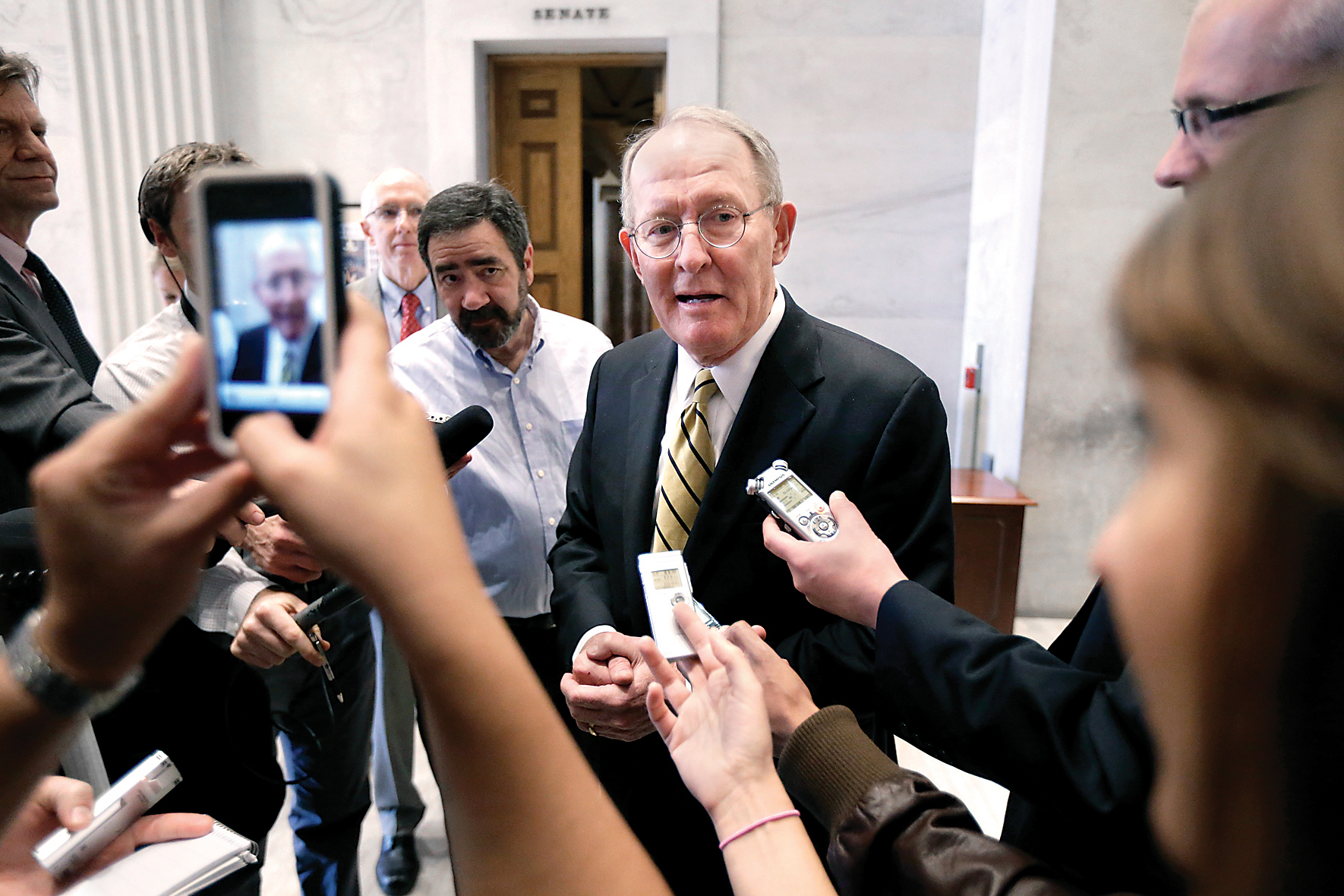NASHVILLE - Republican U.S. Sen. Lamar Alexander on Wednesday called for a "grand swap" in which the federal government would pay for Medicaid entirely while states took sole responsibility for education and possibly other programs receiving federal funds.
In an address to a joint session of the Tennessee General Assembly, Alexander said his plan resurrects a proposal he made as governor 30 years ago to then-President Ronald Reagan.
While Reagan liked the idea and included it in a State of the Union address, Alexander recalled, "of course it went nowhere" in Congress.
But the senator said he believes it could gain traction at a time when states' Medicaid programs are already busting budgets and a provision in the federal Affordable Care Act envisions a massive expansion of the health care program for the poor.
"There's a lot of attention on how the Medicaid program is bankrupting states and how it would be better run if either the federal government or the state government ran it," Alexander said. "Right now it's got two bosses, and you've got rules made in Washington."
He said "what we'll have to do is find enough state programs to transfer back to the states."
Asked about Alexander's remarks, Republican Gov. Bill Haslam's spokesman, David Smith, said in an email "the governor has said before that it's a creative idea that, conceptually, makes sense."
On another costly issue for states, Alexander also said he plans to reintroduce the Marketplace Fairness Act in the new Congress. The legislation gives states long-sought authority to require that online retailers and other remote sellers collect sales taxes on items they sell just as brick-and-mortar stores currently do.
"It simply says that you [states] have the right to decide whether you're going to collect the sales tax that's owed from all the people who owe it or from some of the people who owe it," Alexander said.
With regard to his Medicaid proposal, Alexander later acknowledged to reporters that it could face problems with Democratic President Barack Obama and a U.S. Senate controlled by Democrats as well.
"It didn't do well even when we had a Republican president. And it will be hard to do today," he said. "But the chances of it happening are improved by the fact that there's a lot of attention about how the Medicaid program is bankrupting states."
Medicaid, called TennCare in Tennessee, is funded with the federal government paying at least 50 percent of the cost and states picking up the remainder.
Currently, Tennessee funds about 35 percent, or $2.93 billion, of the $9.27 billion program. TennCare covers about 1.2 million low-income and needy people, including pregnant woman and children as well as the aged, blind or disabled.
The state is looking at additional costs next year even if Haslam opts not to expand Medicaid. That's because people who are already eligible but not on the program are expected to join under the federal health law's insurance mandate.
If the state does expand under the law, the federal government would pick up the entire tab the first three years before it decreases its share to 90 percent after 2015. Proponents say it's a great deal that will help hundreds of thousands. But critics say the federal government could cut back its share at any time.
Even if states pick up funding for other programs as part of Alexander's "grand swap," they would ultimately benefit given the high rate of health care inflation over most economic activity.
Alexander also denounced federal mandates requiring additional expenditures in other areas, estimating it costs Tennessee about $370 million annually, money the state could use in areas such as higher education and cutting tuition.
Alexander said states now collectively pump some $92 billion in their Medicaid programs.
State House Majority Leader Gerald McCormick, R-Chattanooga, said Alexander's push for a "grand swap" on Medicaid, "sounded like a good idea to me. I don't know that the federal government will think it's a good idea. It'll make our budget more predictable."
House Democratic leaders, including Rep. JoAnne Favors, D-Chattanooga, had no comment on the proposal, a Democratic spokesman said.

